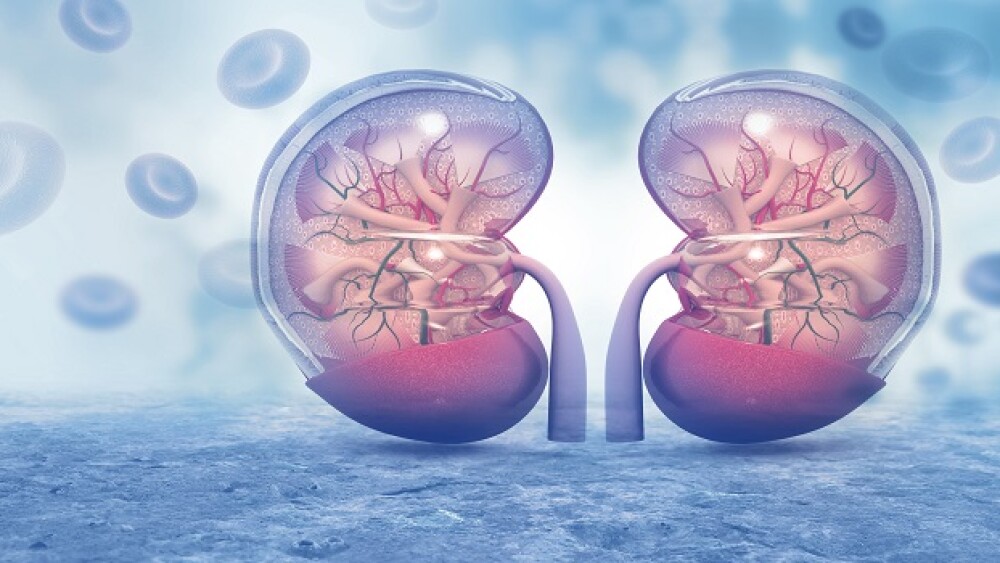Shares of AVEO Oncology plunged 45 percent Thursday trading after the Cambridge, Mass.-based company said it accepted the recommendation of the U.S. Food and Drug Administration to not seek regulatory approval of its kidney cancer drug, Tivozanib at this time.
Shares of AVEO Oncology plunged 45 percent Thursday trading after the Cambridge, Mass.-based company said it accepted the recommendation of the U.S. Food and Drug Administration (FDA) to not seek regulatory approval of its kidney cancer drug, Tivozanib at this time.
AVEO said it will not seek approval until it has “more mature” results regarding overall survival (OS) in patients. The FDA indicated that the preliminary OS results do not allay their concerns about the potential detriment in OS, which were cited in a Complete Response Letter issued June 6, 2013.
Tivozanib (FOTIVDA) is a vascular endothelial growth factor (VEGF) tyrosine kinase inhibitor. It has been approved for the treatment of adult patients with advanced renal cell carcinoma (RCC) in the European Union plus Norway and Iceland. Tivozanib has been investigated in several tumors types, including renal cell, hepatocellular, colorectal and breast cancers. In November 2018, AVEO reported that Tivozanib hit the mark in a Phase III trial. The drug is being tested as a potential treatment for highly refractory advanced or metastatic renal cell carcinoma. Tivozanib met its primary endpoint of demonstrating a statistically significant benefit in progression-free survival. AVEO said tivozanib demonstrated a 44 percent improvement in median PFS and 26 percent reduction in risk of progression or death in dosed patients. Median progression-free survival was 5.6 months for tivozanib compared to 3.9 months for sorafenib, the company said.
However, a preliminary analysis of the secondary endpoint of overall survivability showed a hazard ratio greater than one. Since that preliminary OS analysis in November, AVEO said it has identified the survival status of a group of patients that were previously lost to follow up. With the identification of these OS events, the Oct. 4, 2018, preliminary OS HR was revised from 1.06 to 1.12. The company has not performed any OS analyses beyond the preliminary Oct. 4 data cut-off date, AVEO said this morning.
AVEO said it had planned to initiate a final OS analysis in August of the year, but after discussing OS concerns with the FDA, the August analysis will now be considered an interim analysis. Results of this analysis are expected to be reported in the fourth quarter, AVEO said, which will push back filing of its New Drug Application.
“We are hopeful that the positive PFS outcome will translate into an improved hazard ratio when we evaluate a more mature interim OS outcome in the fourth quarter of 2019,” Michael Bailey, president and chief executive officer of AVEO, said in a statement. “We look forward to continuing to work with the FDA to determine tivozanib’s benefit-risk profile as a single agent in RCC patients.”
AVEO will present detailed results of TIVO-3, the Phase III study comparing tivozanib to sorafenib during an oral session at the 2019 American Society of Clinical Oncology Genitourinary Cancers Symposium (ASCO GU) being held Feb. 14-16 in San Francisco.
After the company announced the delay for tivozanib Thursday, shares of AVEO fell and closed at 70 cents. In premarket trading this morning, the stock has climbed to 72 cents per share.





